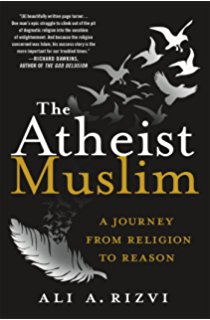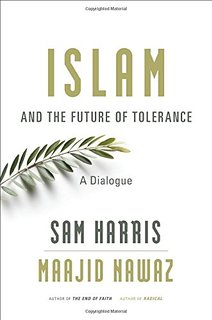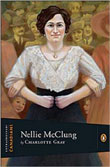Why do good people fall for bad ideas?
Brandon Sun, August 31, 2021 –
David McConkey
For the last few months, Manitobans and Canadians have been
discussing the 100-year history and legacy of the Indian residential
schools. This got me reflecting on what happened in the past and how
we could do better today. At the core of my wondering: Why do good
people succumb to bad ideas?
First, let’s remember the bad ideas we are referring to. As Prime Minister Stephen Harper said in his 2008 apology, there were two main objectives of the Indian residential schools. One was “to remove and isolate children from the influence of their homes, families, traditions and cultures.” The other was “to assimilate them into the dominant culture.” These objectives, the prime minister said, have been summed up by the expression, “to kill the Indian in the child.”
“Today,” Harper concluded, “we recognize that this policy” was “wrong” and “caused great harm.”
OK, today, we recognize this policy was wrong. But in the past – for a century – why didn’t people recognize it was wrong?
Let’s recall that the residential schools were operated by churches: mainly Roman Catholic, but also Anglican, Presbyterian and United. So, for 100 years, Canadian churches and millions of church members supported something that was wrong and caused great harm. Why? And what might we learn from that experience that could help us make smarter and more ethical decisions today?
I would like to note something that may have entered some readers’ minds and that has been raised in the recent public discussions. There were some good residential school teachers, doing good work, not abusing their students. As Harper noted, some former students have spoken positively about their residential school experience. To me, this makes sense. Results would be mixed with any program lasting a century and involving 150,000 individuals.
But some positive reports do not change the overall picture. The churches supported the objectives of the residential schools: to remove, isolate and assimilate Indigenous children. What the churches believed was the right thing to do – “to kill the Indian in the child” – was wrong and caused harm. That is why the churches have apologized and paid compensation.
But I don’t think we should brand the millions of ordinary church members as bad people. Rather, we should view them as people like us – going along with what they believed was right – except they had what we now recognize were bad ideas.
Everyone's views are influenced by the culture immersing them. And remember that Canadian society in the past was much more racist and much more allowing of abuse – including emotional, physical and sexual abuse.
If everyone around us thinks one way, it is hard to think differently. Furthermore, when we encounter new information, we tend to incorporate it into the conventional wisdom. This is known as “confirmation bias.”
So we can understand how people – even if they had misgivings about residential schools – went along with the prevailing beliefs. And people usually dismiss those who challenge the standard orthodoxy. One dissenter who was rebuffed was Dr. Peter Bryce. He studied conditions in residential schools and issued a public appeal for reform in 1922.
If we had lived back then, would any of us been willing to stand up and be different? Especially – as in the case of residential school policy – when that meant accusing your own church of being wrong and causing harm?
For me, this leads to some workable assumptions for today. People are basically good. We generally want to do the right thing and not harm others. But we are flawed: we can be narrow minded, unquestioning, too eager to fit in. And we can have bad ideas.
The solution for us? Be open: to learning new facts, to observing more critically, to listening more closely, to considering larger perspectives.
An excellent book that explores these themes is by American social psychologist Jonathan Haidt. It is The Righteous Mind: Why Good People Are Divided by Politics and Religion.The book is from 2012 and it’s at the Brandon Public Library. If anything, The Righteous Mind is more relevant now than when it was published.
I remain hopeful today even though bad ideas are proliferating. People are mostly good. And compared to Canadians in the past, today we are much more knowledgeable. And today we have a much higher standard of morality.
One big lesson from the past? Let’s be ready to question “the way things are” and “the way everyone thinks.” Let's be ready to change course. We might be doing something that is wrong and causing harm. We can question, adjust, improve. Right now. We don’t need to wait 100 years.
First, let’s remember the bad ideas we are referring to. As Prime Minister Stephen Harper said in his 2008 apology, there were two main objectives of the Indian residential schools. One was “to remove and isolate children from the influence of their homes, families, traditions and cultures.” The other was “to assimilate them into the dominant culture.” These objectives, the prime minister said, have been summed up by the expression, “to kill the Indian in the child.”
“Today,” Harper concluded, “we recognize that this policy” was “wrong” and “caused great harm.”
OK, today, we recognize this policy was wrong. But in the past – for a century – why didn’t people recognize it was wrong?
Let’s recall that the residential schools were operated by churches: mainly Roman Catholic, but also Anglican, Presbyterian and United. So, for 100 years, Canadian churches and millions of church members supported something that was wrong and caused great harm. Why? And what might we learn from that experience that could help us make smarter and more ethical decisions today?
I would like to note something that may have entered some readers’ minds and that has been raised in the recent public discussions. There were some good residential school teachers, doing good work, not abusing their students. As Harper noted, some former students have spoken positively about their residential school experience. To me, this makes sense. Results would be mixed with any program lasting a century and involving 150,000 individuals.
But some positive reports do not change the overall picture. The churches supported the objectives of the residential schools: to remove, isolate and assimilate Indigenous children. What the churches believed was the right thing to do – “to kill the Indian in the child” – was wrong and caused harm. That is why the churches have apologized and paid compensation.
But I don’t think we should brand the millions of ordinary church members as bad people. Rather, we should view them as people like us – going along with what they believed was right – except they had what we now recognize were bad ideas.
Everyone's views are influenced by the culture immersing them. And remember that Canadian society in the past was much more racist and much more allowing of abuse – including emotional, physical and sexual abuse.
If everyone around us thinks one way, it is hard to think differently. Furthermore, when we encounter new information, we tend to incorporate it into the conventional wisdom. This is known as “confirmation bias.”
So we can understand how people – even if they had misgivings about residential schools – went along with the prevailing beliefs. And people usually dismiss those who challenge the standard orthodoxy. One dissenter who was rebuffed was Dr. Peter Bryce. He studied conditions in residential schools and issued a public appeal for reform in 1922.
If we had lived back then, would any of us been willing to stand up and be different? Especially – as in the case of residential school policy – when that meant accusing your own church of being wrong and causing harm?
For me, this leads to some workable assumptions for today. People are basically good. We generally want to do the right thing and not harm others. But we are flawed: we can be narrow minded, unquestioning, too eager to fit in. And we can have bad ideas.
The solution for us? Be open: to learning new facts, to observing more critically, to listening more closely, to considering larger perspectives.
An excellent book that explores these themes is by American social psychologist Jonathan Haidt. It is The Righteous Mind: Why Good People Are Divided by Politics and Religion.The book is from 2012 and it’s at the Brandon Public Library. If anything, The Righteous Mind is more relevant now than when it was published.
I remain hopeful today even though bad ideas are proliferating. People are mostly good. And compared to Canadians in the past, today we are much more knowledgeable. And today we have a much higher standard of morality.
One big lesson from the past? Let’s be ready to question “the way things are” and “the way everyone thinks.” Let's be ready to change course. We might be doing something that is wrong and causing harm. We can question, adjust, improve. Right now. We don’t need to wait 100 years.
*
* * *
See also: How Do You Be a Good Person?
Racial Misreckoning Only Limits Our Vision
Telling the Truth Today
Getting to Good Ideas
Can We Say No to More Racism?
Enlightenment Values Are Needed Now More Than Ever
QUICK CONTACT:
David McConkey,
Brandon, Manitoba
Send me an email
My Sites / Interests
- Citizen Active
- Columns
- The Great War
- Live Well, Do Good
- Manitoba History
- Obituary Guide
- Reviews
- The War on Drugs
Some Reviewed Books:
The War on Drugs:
A Failed Experiment

The Atheist Muslim:
A Journey from Religion to Reason

Stranger Than We Can Imagine:
An Alternative History of the 20th Century
Heretic:
Why Islam Needs a Reformation Now
Islam and the Future of Tolerance:
A Dialogue

Extraordinary Canadians:
Nellie McClung

The Greatest Show on Earth:
The Evidence for Evolution



